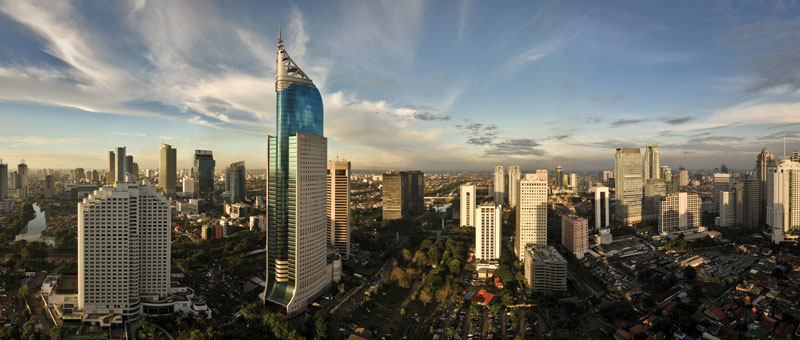By Nabilah Amri Badzlina and Rintan Tiffani Angela
Jakarta has been identified as the Special Capital Region of Indonesia which is embodied in the city’s name for decades. This label gives Jakarta a œprivilege over other cities.
It is undeniable that Indonesia’s largest city, also known as Batavia, has been associated with the concept of metropolitan life, commercial centre, central government base and land of prosperity in Indonesia. Large shopping centres, broad highways and concrete jungle have all become hallmark components. Furthermore, Jakarta has quite a meaningful historic value, which seems to be a considerable strength for this city.
On 29 April 2019, in a special meeting at the Presidential Office, President Joko Widodo surprised Indonesians by announcing that the capital will be relocated outside of Java. Considering that Jakarta has served as the nation’s capital for nearly 500 years, several parties were surprised by the announcement, despite the fact that the plan to shift the capital has been echoing for a long time.
This is attributed to the reason that the Jakarta region is already densely populated, prone to floods, faced with land crises, traffic problems and pollution threats. Apart from the fact that Jakarta’s infrastructure is already at full capacity, relocating the capital is also shifting the Indonesian government’s Java-centric paradigm.
Five months after the announcement, an official decision was made by the President. East Kalimantan’s Penajam Paser Utara Regency and Kutai Kartanegara Regency have been declared as the area for the new capital city. Formerly, Palangka Raya had emerged as a prominent contender for the new capital’s location.
In his speech President Jokowi said, “The most ideal location for the new capital city is in parts of North Penajam Paser Regency and parts of Kutai Kartanegara Regency, East Kalimantan Province. This was broadcast by KompasTV on Monday, 26 August 2019.

new capital city on KompasTV
The decision to relocate the new capital city in East Borneo has been based on three years of research due to some reasons. Firstly, for the minimal risk of natural disasters such as floods, earthquakes, forest fires, tsunamis, volcanoes and landslides. Secondly, the area is close to developed cities in East Borneo – Balikpapan and Samarinda.
The next reason is because it is in the middle of Indonesia which means the location is quite strategic. President Joko Widodo stated, “The distance of East Kalimantan to all provinces in Indonesia is quite close, which is 893 km compared to five other choices for the new capital city.”
President Jokowi further said that the final reason is that the government owned 180 hectares of land in that area with relatively complete infrastructure.
However, the relocation of the new capital city is opposed by Greenpeace Indonesia, an environmental organisation, which raised several concerns that the development of a new capital city in East Kalimantan will only result in environmental damage as this requires conversion of forests and land to rebuild the city.
In the press conference on 26 August 2019, Jokowi announced that the construction of the new capital city would begin in 2020 and the gradual transfer or relocation of the government would start in 2024.
In this case, the government will start drafting and creating new laws and regulations regarding the new capital city. If the legal laws of the new capital city are not enacted, it is feared that there will be a change in decision in the next presidency period.
This process is to avoid legal problems in the future considering the relocation of the new capital city of Indonesia will take a long process.
The idea of relocating the government seat from Jakarta had been discussed since the era of President Soekarno until the era of President Susilo Bambang Yudhoyono, who supportively agreed to the idea of creating the new political and administrative centre outside Jakarta.
The programme on relocating the capital city of a country is nothing new since it has been implemented by several countries beforehand. For example Malaysia, where the government and federal administration is now based in Putrajaya.
For almost the same reason, the administrative seat of the government of Malaysia was moved out several years ago (in 1999) because of the worsening traffic jams in Kuala Lumpur. This situation had forced the government to concentrate its administrative centre outside Kuala Lumpur where it is located in the growth region of the country.
From this decision, Malaysia has now succeeded in moving the centre of its government and is considered to have produced a lot of efficiency, especially in improving the work productivity of the federal capital’s administration.
Indonesia in this case can reflect much on the Malaysian government’s success in relocating the centre of its administration by looking out for much more information specifically on the budgeting which becomes a good strategy to not ruin its national economy when moving its capital city out of Jakarta. ***
(This is part one of the three-segment special report series written as pair assignment for Feature Writing class)
